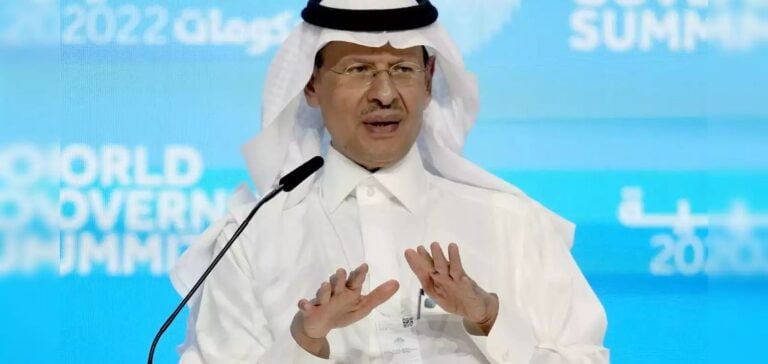Saudi Energy Minister Prince Abdulaziz bin Salman stated that net zero scenarios by 2050 are unrealistic. Speaking at the Green Initiative Forum in Riyadh, he warned against an approach disconnected from the economic and energy realities of the world.
Global Goals Deemed Unrealistic
Prince Abdulaziz recalled his 2021 remark describing net zero scenarios as “La La Land,” referring to their utopian nature. “We are currently undergoing a reality check between what is imagined and what can actually be achieved,” he said. The minister emphasized that without robust energy security, efforts to meet climate and economic goals will be compromised.
Saudi Arabia, a major player on the global energy stage, upholds its commitments with a carbon neutrality target by 2060 and specific efforts by Saudi Aramco to achieve neutrality for its direct (Scope 1) and indirect (Scope 2) emissions by 2050. However, these commitments align with a cautious and pragmatic strategy.
Continued Growth in Oil Demand
Amin Nasser, CEO of Saudi Aramco, highlighted that global forecasts show an increase in oil demand, driven by Asian markets and liquid-to-chemical projects. According to Nasser, the global energy transition is far from meeting current demand. Of the 1.6 billion vehicles in use, only 60 million are electric, leaving traditional fuel demand on the rise.
The numbers support this view: while political mandates accelerate electrification, the net addition of internal combustion engine vehicles globally still far exceeds the deployment of electric alternatives.
Energy Security as a Top Priority
The Saudi minister stressed the importance of ensuring stable energy supplies, an essential condition for maintaining global economic stability. “Energy cannot be treated as an optional choice,” he said, noting the impact of recent conflicts, particularly in Ukraine and the Middle East, on infrastructure and supply routes.
These disruptions, combined with occasionally misaligned transition strategies, increase the risk of significant energy crises. The minister called for better international coordination to avoid imbalances between supply and demand.
Involvement in Climate Negotiations
Saudi Arabia has strengthened its role in climate negotiations, notably at the recent UN Climate Conference in Baku. While reaffirming its commitment to sustainability, the country continues to advocate a realistic approach that accounts for energy security and economic imperatives.






















